As I wrote previously, my colleagues and I have invested a lot of time learning about the various travel insurance products available. While similar on the surface, they have nuances that can determine whether or not they provide adequate coverage for a client’s particular trip. So I am amazed that anyone would book a trip and simply click a box saying they will purchase the insurance offered by that supplier. (But at least they are buying some form of insurance!)
My clients tend to fall into two groups:
> Those that understand the value of travel protection, and expect me to send them a quote as soon as they’ve booked their trip.
> Those that say they have never purchased it because they’ve never had to cancel a trip, or it’s not worth the money.
First, I don’t know anyone who has a crystal ball that guarantees no unexpected emergency will happen that could cause them to cancel. Second, many clients are surprised to find out how inexpensive insurance can be. (The rule of thumb is 5-7% of the trip cost, and families pay even less on policies that include free coverage for children.) And there are many other benefits offered besides trip cancellation coverage which can make having a policy pay off.
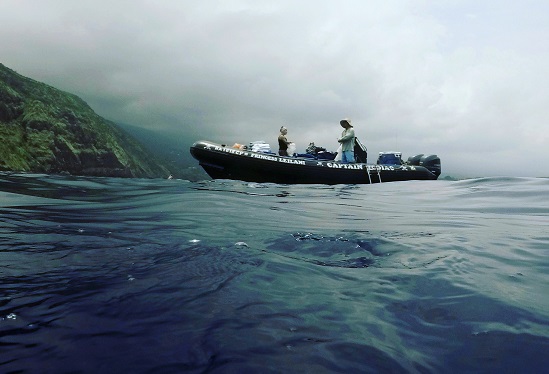
Reimbursement for dropping personal items in the ocean can recoup the costs of an insurance policy. Take it from my personal experience! (Photo credit: Ryan Mack)
♦ Expert Tip ♦
Buy a policy as soon as you make any payment on a trip, otherwise you can lose out on coverage
for pre-existing conditions or financial default. You can add more coverage
as you book other components of the trip. And be sure you
understand all the terms and conditions to qualify for that coverage.
What do my colleagues and I learn in training sessions and updates from our insurance reps?
- How do we ensure clients are covered for pre-existing medical conditions, and what is considered a pre-existing condition?
- How do we ensure clients are covered for financial default, and how is “financial default” defined?
- How is “family member” defined?
- What documents are needed to file a claim successfully?
- Which suppliers offer “cancel for any reason” coverage and what are the terms?
- What upgrades are available for unique situations not normally covered: pregnancy, a cancelled wedding, an ill pet, civil disorder?
♦ Expert Tip ♦
Losses related to a home, villa, or apartment rental booked directly with the owner are not ususally covered.
The booking must be made with a travel supplier, which include the companies travel advisors work with.
There are also travel packages that offer vacation protection plans with coverage that may be better than traditional travel insurance policies. For example, one of my clients was able to cancel their trip with less than 24 hours notice when COVID-19 was just starting to spread, and they didn’t want to be out of the country, because they had “Cancel For Any Reason” coverage. Most insurance policies cut off this benefit 48 hrs or more prior to travel. This can be an important factor in determining the best way to book a client’s trip.
It’s true that there are some things travel insurance doesn’t cover. In fact, I was quoted in a Forbes article on this topic. While it doesn’t cover cancellation for pandemics or government restrictions, a traveler is generally covered if they get coronavirus or fail a COVID-19 test. And you definitely want coverage if you fall ill and/or are quarantined in a hospital or hotel while traveling. Some destinations now require visitors show proof of insurance and coverage for quarantine expenses and medical evacuation.
♦ Expert Tip ♦
If you don’t need or want trip cancellation coverage, buy a barebones policy
to get the other benefits including coverage for medical expenses, medical evacuation, baggage damage/loss,
24×7 emergency support, and more. This is especially recommended when traveling
to a destination that may require large advance payments for treatment.
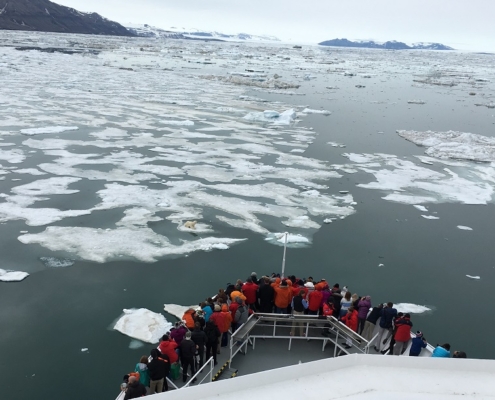
Cruising in a remote location? You need travel insurance to cover evacuation from the ship to the nearest medical facility, and medical evacuation coverage to pay for transportation to the hospital of your choice. (Photo credit: Lindblad Expeditions client on Svaldbard polar bear cruise)
When it comes to travel insurance, most travelers don’t know what they don’t know. Our job as professional travel advisors is to know what questions to ask our clients, so we can recommend the products that would provide the best protection for their specific needs.
Disclaimer: The information presented here may not apply to all travel insurance products, and can change at any time. Contact the insurance provider to answer technical questions about benefits, exclusions, and conditions of any of the insurance they offer.

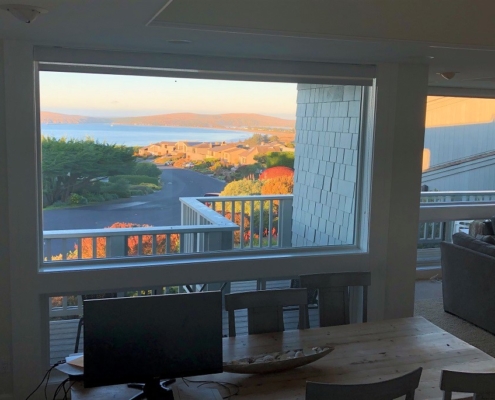
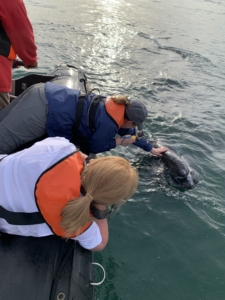


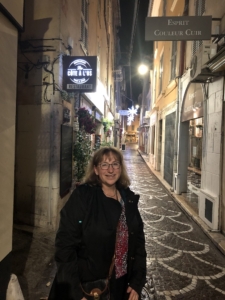












 7. Your travel supplier declares bankruptcy.
7. Your travel supplier declares bankruptcy.








